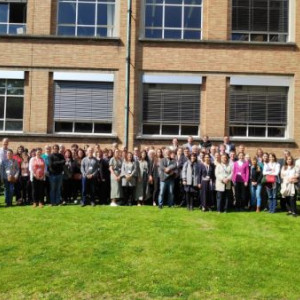 \
&
Contact us
\
&
Contact us
 \
&
Contact us
\
&
Contact us
Published on | 4 years ago
Programmes JRCThe JRC e-learning course on Science Policy is now open for registration on the new EU Academy platform.
The course is designed for researchers who would like their research results to have greater policy impact, but may not have the know-how to communicate effectively with policymakers.
The Science for Policy e-learning course provides the skills that researchers need to increase the impact of their research results on policy and society at large. Designed for early to mid-career researchers, the course equips participants with state-of-the art knowledge and best practice examples from the field. Participants engage in interactive games and self-assessments to gauge their progress. The 60 minutes course can be followed at the learner’s convenience and own pace.
You can find the link to the course here.
We offer news and event updates, covering all domains and topics of Horizon Europe, Digital Europe & EDF (and occasionally, for ongoing projects, Horizon 2020).
Stay informed about what matters to you.
By signing up, you can opt in for e-mail notifications and get access to
a personalised dashboard that groups all news updates and event announcements in your domain(s).
Only for stakeholders located in Flanders

The Project SeafoodTomorrow is a project that is approved within the call BG-08-2017: Innovative sustainable solutions for improving the safety and dietary properties of seafood.
The three-year SeafoodTomorrow project brings together 34 partners. From Flanders, ILVO takes part in the project.They are responsible for setting up two databases which are the central point of the project to gather all the project data from analysis and assessement. ILVO is also leader of the workpackage dealing with authenticity, traceability and labelling. ILVO is also involved a the workpackage about novel food preparation. And in the managerial part, ILVO is head of the IPC- Intellectual Property Comité.